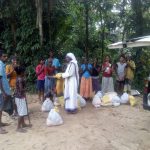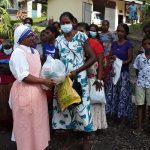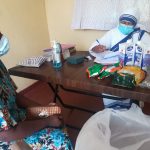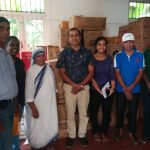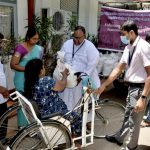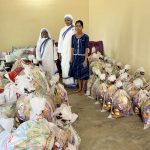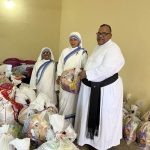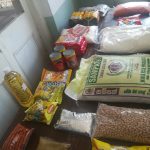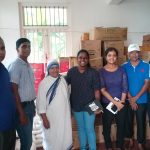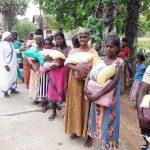“There is so much indifference in the face of suffering, May we overcome indifference with concrete acts of charity” – Pope Francis
Background
Sri Lanka is currently going through the worst economic crisis since its independence in 1948. Years of economic mismanagement, corruption, short-sighted policy making, and overall lack of good governance left Sri Lanka remains crippled by an unprecedented economic crisis since March 2022. The 2019 Easter bombings and COVID -19 pandemic ravaged tourism which is Sri Lanka’s main source of revenue, simultaneously former President Gotabaya decided to ban chemical fertilizers in the year 2021 to make Sri Lankan farming ‘’All organic’’ a move that devastated the tea industry which is Sri Lanka’s main export crop. Both these scenarios directly affected the foreign currency reserves of the country.
The rapid depreciation of the local currency and insufficient foreign currency reserves affected the imports of essential food items, fuel, and medicines. Empty shelves in markets and grocery shops, endless queues, and overnight camping around fuel stations became regular sights in Sri Lanka from May to August 2022. The prevailing economic crisis of the country has given a dire financial challenge, especially to those who are depending on a daily wage and a monthly income since their income remains the same while the prices of essentials are going up at a rapid rate. As a result, of income loss and the inability of wages to cope-up with inflation, people’s access to adequate and nutritious diets has been affected, while inflation is driving up the cost of medicine and fuel costs, preventing access to essential health care. Sharp declines in the import of essential goods, loss in agricultural production, loss of income, and rapid increase in the prices of goods have directly affected the household economy.
MCS & CSL Intervention
Hence, an intervention was designed to support selected vulnerable and poor families with the funding support of Catholic Relief Services (CRS). Missionaries of Charity Sisters (MCS) from Sri Lanka initiated this intervention with the support and coordination of Caritas Sri Lanka and its Diocesan Network. With the endorsement and guidance of MCS, Caritas Sri Lanka acted as a mediator between CRS and Missionaries of Charity Sisters (MCS) in procuring the listed dry rations and delivered it to the selected convents run by the sisters. Meanwhile, MCS took the responsibility of distributing the packs among the most vulnerable beneficiaries based on the selection criteria, which they adopted after visiting the poor and vulnerable families in their respective localities. The main goal of this feeding program is to help the most vulnerable families and households and make people feel that there is someone to help them out to face the present crisis.
Based on the sister’s observation during their house visits, 3300 Families for the first phase and 1800 families for the second phase were selected from 07 Districts such as Colombo, Kandy, Jaffna, Mannar, Trincomalee, Galle and Kurunegala in Sri Lanka.
Twelve essential commodities including rice, dhal, sugar, wheat flour, chick peas, sprats, mackerel, soya chucks, noodles, fresh milk, nestomalt and soaps were included in a pack during the first phase of the feeding intervention. At the end of first phase, a baseline and end line surveys were carried out among the beneficiaries.
Based on the learnings gained from the first phase, a food pack with sufficient amount of calories lasting more than 10 to 15 days was planned for the second phase with eighteen essential commodities.
Challenges to Implementation
Sri Lanka went through a serious fuel crisis from May to August 2022. This had affected the procurement and distribution process of dry rations. Inadequate availability of fuel for vehicles delayed the process of loading and unloading of goods in some Districts. Despite prices being high, severe shortages and scarcity of essential food items in the market made it very hard to procure the listed essential goods. With the full cooperation of Caritas Staffs and Sisters from Missionaries of Charity, the challenges were overcome in the spirit of solidarity.
The entire implementation of this program started in June 2022 and ended in the end of October 2022.


